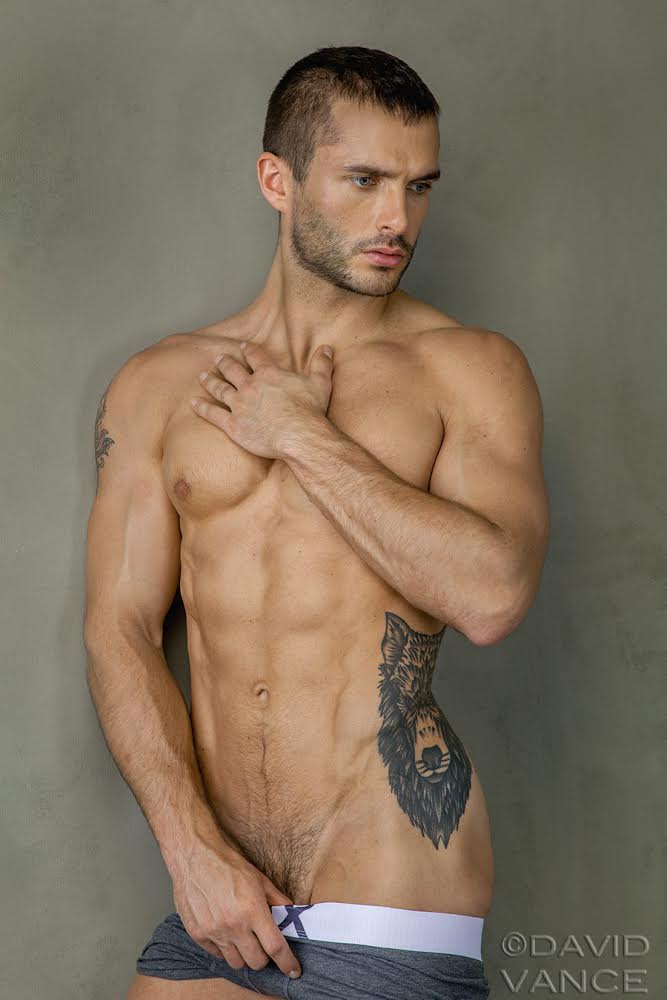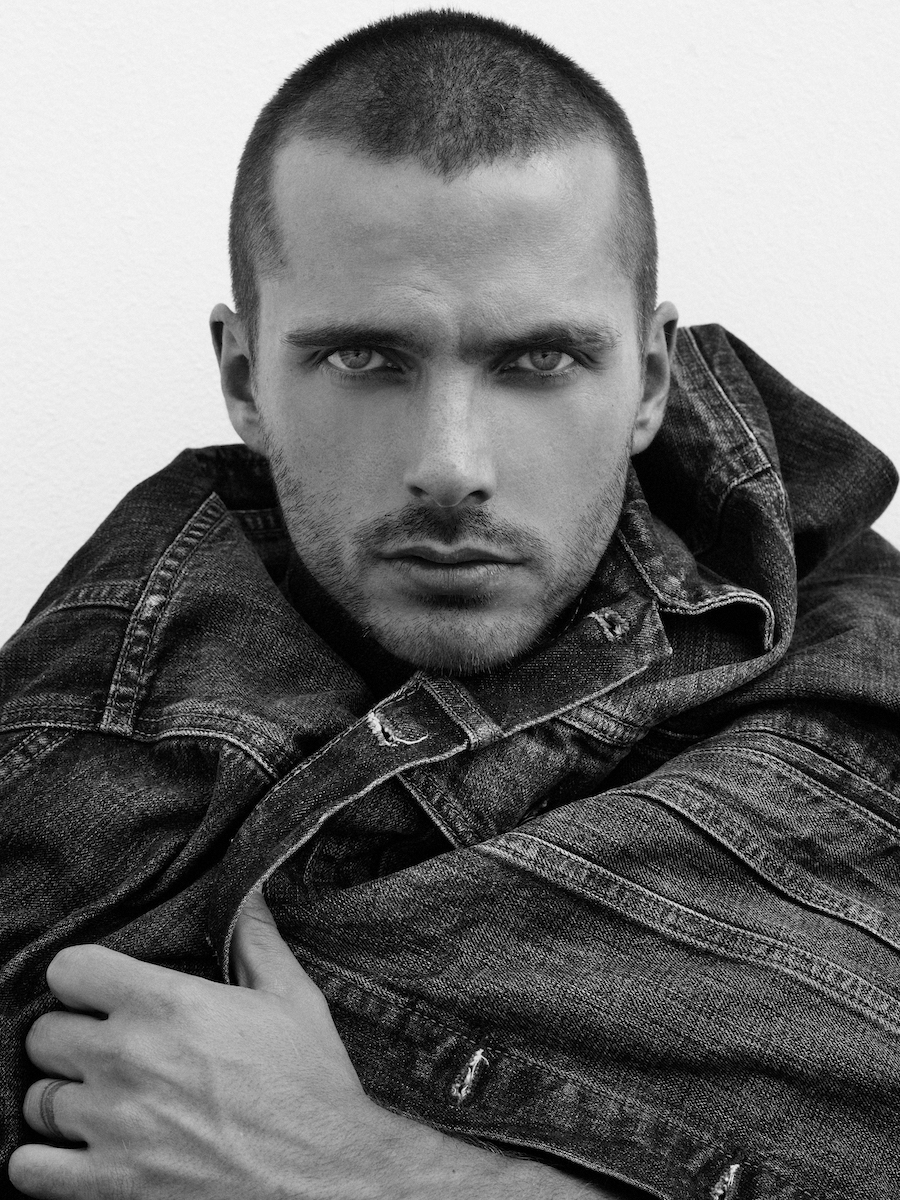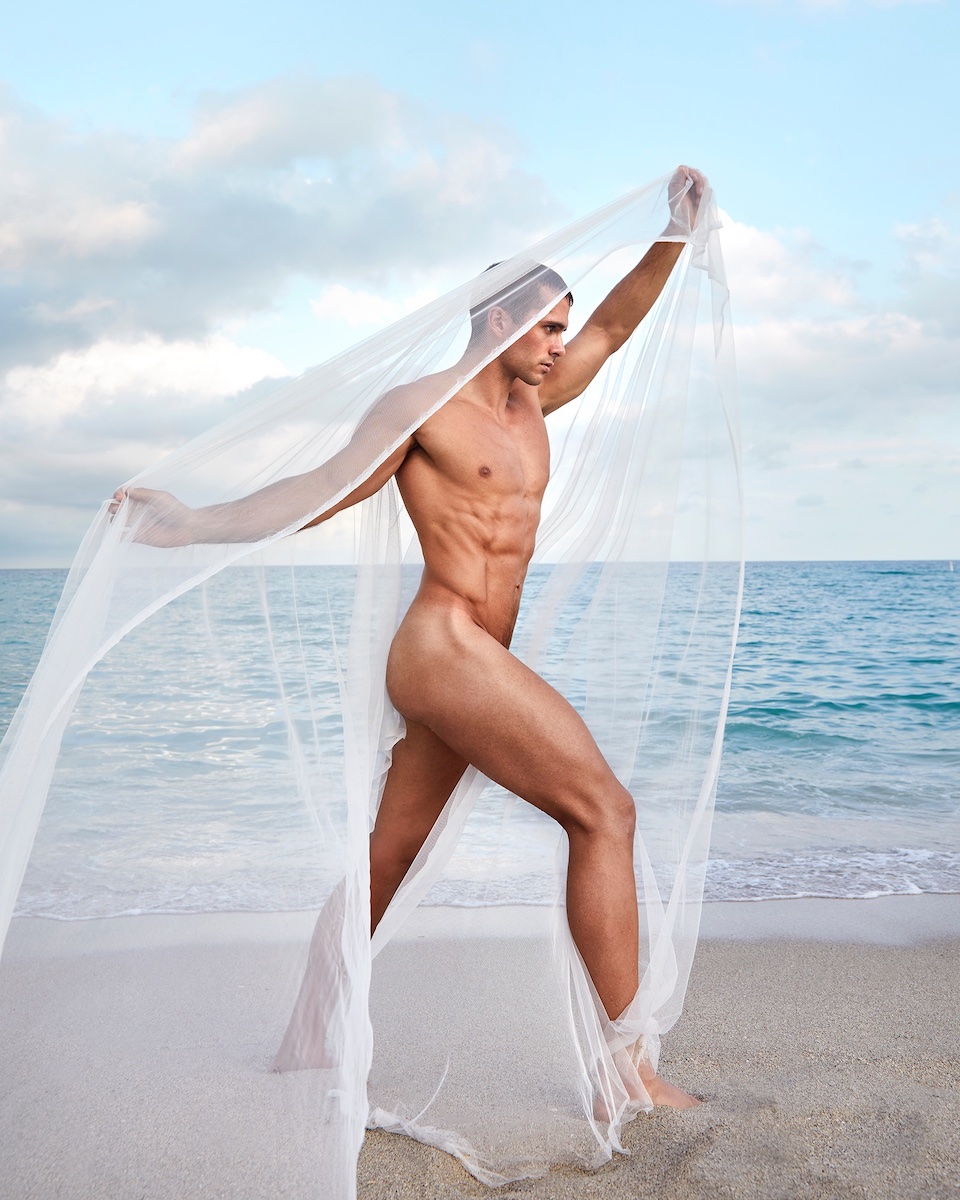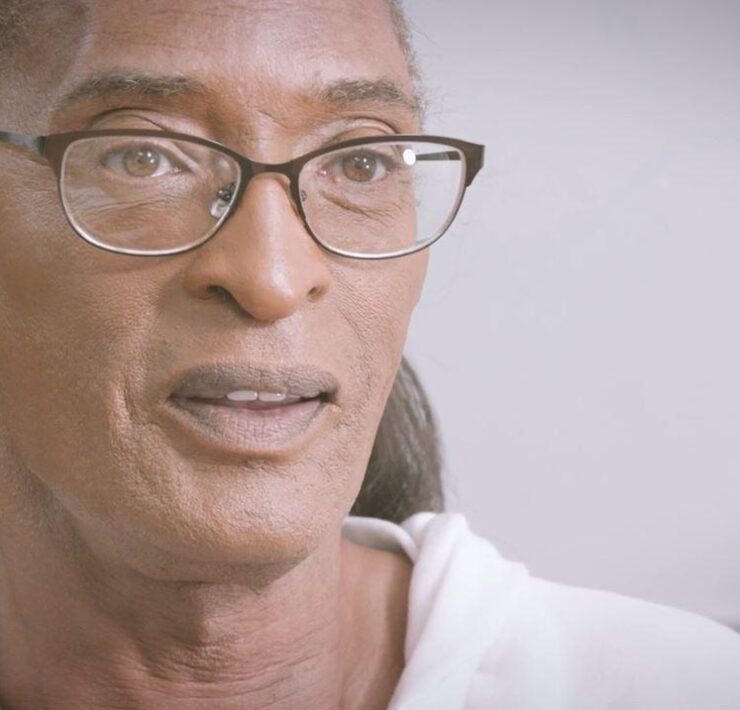Overcoming Guilt, Shame, and Addiction: Mark A. Turnipseed

Denny Patterson is a St. Louis-based entertainment and lifestyle journalist…
At 6 years old, fitness coach and LGBTQ addiction recovery advocate Mark A. Turnipseed received the message loud and clear: liking boys is a sin and a one-way ticket bound for Hell.
Confused and full of self-hatred, Turnipseed created a façade of the boy he thought he was supposed to be. However, attempting to live a lie only sent him spiraling even deeper. In his tell-all memoir, My Suicide Race: Winning Over the Trauma of Addiction, Recovery, and Coming Out, readers receive a first-hand account of Turnipseed’s journey as he plunges into the darkness of drug addiction, alcoholism, prostitution, and suicide attempts.
After surviving numerous relapses, he finally finds a surprising key to saving his own life. While training for a triathlon, Turnipseed embraces a fresh commitment to sober strategies that leads to good health, self-acceptance, and authenticity. He shows that recovery is possible, even for those who struggle for years to reach sobriety. My Suicide Race offers hope on so many levels.
OFM had the opportunity to connect with Turnipseed and talk more about the book, releasing these dark memories out into the world, how competing in triathlons played a role in his recovery, and the experience of embracing his self-confidence and sex appeal.

Let me begin by asking about My Suicide Race. How excited are you to release your debut book and tell your story?
It was extremely exciting, but honestly, fairly anticlimactic [laughs]. The reason I say that is because you think these truths that you are bringing into the world are going to hit and shatter, and everybody is going to be shocked. Yes, there was an element of shock, and there were a lot of people excited about the book, but the beautiful thing about it is, we are all in this together. We all experience pain; we all have traumas; we all have sexual issues. So, it was less of this exciting bubble burst and more of a relationship and closeness that I felt with family, friends, and others who read the book.
Experiencing so much trauma over the years, what inspired you to write this memoir?
I think part of it was the fact that I studied to be a counselor and professional psychologist, but I fell into heroin right when I was trying to get my Master’s. Obviously, I did not continue in that way, but I have always enjoyed looking deep into the reasons why somebody does the things that they do. I saw a very interesting connection between the different research that I had done, the people I had worked with who had traumatic experiences, and they all kind of expressed themselves the same way, no matter what they went through.
I realized that the traumas that I had were not so special, and I think it was at that point that I finally started to recover from my traumas, too. I realized that I was not alone. There were millions of people across the world who also experienced, maybe not the same, exact thing, but they are having the same symptoms and having the same difficulty overcoming them. When I started to realize that, I was like, ‘Oh my gosh, I need to share my story so that other people are able to connect like I have done.’ That is where I am finding healing.
It is not by tapping out of my traumas, avoiding them, or pushing them away, but rather by tapping into them using my weaknesses, as well as my strengths to connect with other people. Writing has been one of the ways that I have always connected with other people. Even if it was my poetry that I was not sharing, I felt like I was connecting to the spiritual world. It’s like my song.
How has My Suicide Race been received by readers?
So far, very well. I have not heard any negative feedback. People have given great reviews on Amazon and stuff, but the best responses I have received are little personal emails of people saying, ‘I thought I was the only one.’ To me, that brings back full circle my whole purpose of writing it in the first place. People have asked me to give speeches, do interviews, do podcasts—it has been extremely rewarding. Sales are not super big, but the reward has been outstanding.
The feeling of not being alone, is that the number-one message you hope readers take away from the book?
Yes, because I think that is the scariest and hardest thing to feel. I think that is ultimately why we fear things so terminal as death. We would be so alone in the darkness. Being left alone is, like, one of our first fears as a baby, and that is why we start crying. That is why going to sleep at night is so hard when you are a little baby. That is why we all strive so hard and do the most outrageous things for love and companionship. We do not want to be alone. When difficult challenges in our lives are facing us, those are reasons why to even feel less alone, not to feel more alone. Those are the things that can bring us together and create a stronger community.

You touch on sexual trauma, prostitution, and conversion therapy. Was it difficult to revisit these memories?
It was horribly difficult. The whole process took about three years in the making. It started out as a blog, and the first couple of months there were very, very difficult. Going through some of the traumatic stuff of my childhood, I would put it onto paper, but then I had to relive the emotional aspects of it that I had denied and shoved to the side for so many years. That was extremely difficult for both me and other people in my life.
My ex-wife at the time, for instance, she would be like, you are being a horrible and angry person right now. I’d be short; I would be very tempered; it was very difficult. Some of the stuff, when I first started writing it, I honestly did not remember it. I would kind of wake up and go, ‘OK, I need to write about this thing.’ So, I would write about this thing, and maybe that was an easy thing to write about. Some descriptive part of my childhood, like when I talk about the house beside the river with the bushes that looked like they were out of Fraggle Rock.
I would write about something like that, then I would realize from going through those memories of childhood, the real descriptive stuff and putting myself into it, then suddenly, the trauma would come up. Like, why did I remember those bushes? Something would come up, and I would go, I have to put that in my book. Fear would then fall over me, and I would not only be scared about having to relive those memories, but also putting them into a book that somebody would learn about. What are people going to do? What are people going to think? It was a very difficult challenge to get over.
On the other hand, this was a therapeutic process for you?
It was. Ultimately, what we try to do in therapy and counseling is to help people relive and re-experience memories in a controlled environment. Do that with your counselor or therapist so that you are able to feel those emotions, put a name to them, and finally accept them for what they are so that you can move past them. Shame often comes with trauma and sexual trauma, and we need to name the shame. We need to take accountability for it and accept it so that we can finally reject it.
You came out a little bit over a year ago. How has the relationship between your family, kids, and ex-wife been?
It has been a process. At first, I came out to my ex-wife, and we tried to make things work within our family. Obviously, after a couple of months, that did not work out. Back in January of last year, when I was sitting down with my book, I realized I could not finish the book the way that it was. I had to rewrite the entire thing because I was now finally coming out of the closet. In doing so, I would find the answer to why the book was not able to be completed. I would find out the answer to a lot of those traumatic problems and why I could not get above them.
Another thing that would end up happening, I could finally be authentic with my parents, my kids, and my ex-wife. At first, I thought it was going to end up in this firestorm of relationships breaking. I thought my kids would not like me, and they would reject me, think I was weird, or think I was diseased. When it came to my parents, I was so scared that they would reject me as well. They did not reject me, but they said that they did not support me anymore. They were like, ‘We still love you, but we do not support you.’
Like, what does that mean? Let’s explore this. Let’s see what’s going on. What we ended up doing, I kind of invited them on an exploration. I have no idea what I am doing right now. I have lived my whole life being so far away from gay people, gay culture, even the word gay. I have no idea where I am headed to right now, but I said to Mom and Dad, I know this does not mean that I have to change being sober. This does not mean that I have to change my values, my respect for my God, and I do not have to start going to endless parties all night and drunken orgies. So, I want you guys to come in and explore this with me. Let’s look at it together. Let’s see what it actually means to be gay.
So, that’s what we did together, and it ended up with us growing a much closer relationship. Initially, I noticed there were some opportunities to fight them when they said that they don’t support me. I could have blown up at them, but instead, I said, ‘Mom and Dad, let’s use this as an opportunity because we are both scared of the unknown. Let’s educate ourselves. Now, my parents are so much more accepting, not only of me, but gay people in general, and it has been a very beautiful process.

You are a triathlete, and you say sports and competing also made an impact on your recovery. Can you talk more about this?
The competition aspect of it, I don’t think that had too much to do with my recovery. I think it was more so looking at something that I did not believe in that I could do. For instance, getting sober, it was something that I did not believe that I could do, too. Right when I started training for a triathlon, I had just proven to myself, again, that I could not get sober. I was at wit’s end; I cannot go on living, and I said, I am going to train for a triathlon. I am going to do this. If I don’t do this, then screw it. I am a failure, and I am ready to die. I was really ready to die. It was kind of my last straw. Do something and prove yourself to yourself.
Interestingly, triathlon first helped me start seeing both strengths and weaknesses with myself. May that be emotionally or physically, and both of those started to relate to things that happened in sobriety as well. For instance, I will talk about a weakness; I was extremely scared of asking other people for help. Even when I was in school and could not figure out a math problem, there was no way I was going to ask anybody for help on that math problem. I would struggle over algebra for hours on end so that I would avoid asking a question that could be answered in 10 seconds.
That same thing happened to me in track. I was scared of asking a coach for help, and it was holding me back. So, I finally asked a coach for help, and I started to excel at my training. Like, wait a second, Mark. You have been trying to get sober now for 10 years, and you cannot figure it out. You need to ask for fucking help. Stop being such a douche, and let other people in. I realized that my fear of intimacy was holding me back from so much, and I was able to ask for help in that way. As something would come up in triathlon, I would apply it to sobriety, and it would work.
Why do you think so many people who have experienced self-hatred go down destructive paths?
That is a good question. I don’t know if I can say why most people do that, but I can speak to why I did that. A big question we must ask is, why and where did this self-hate come from? What is brewing this self-hate? In my life, I did not have a whole bunch of people who were telling me that I was a horrible person. Some people do, like Eminem. You listen to some of his songs, and you are like, ‘Holy cow, his parents were treating him horrible his whole life.’
My parents treated me wonderfully. They always said, ‘You can be anything you want to be. You have so much potential.’ Yet, I was filled with so much self-hate and disgust. I was filled with this idea that I did not match up to what they believed, or what other people believed in me. At some point, I did not even match up to the person I saw in the mirror. I would see that person and be like, ‘That’s wrong. That is not who I am. I am not good-looking; I am nasty on the inside. There was even a time, I talk about it in my book, where I didn’t think I should be a man. I should be a little boy.
A lot of it was kind of delusional. Some of the stuff I believed was not true at all, but not being able to get away from that self-hate was my biggest problem. Ultimately, why I went down this destructive path, I was not trying to confirm what other people were saying, but I was trying to escape this demon inside of me that conflicted with the truth of what I was. This demon inside of me that kept being like, ‘That’s not you. You’re wrong. You like boys, so you should not be a boy.’ Well, why can’t I be a boy that likes boys? I went down a destructive path for escape, and that is why my drug addiction and alcoholism was leading to suicide.
What is the best advice you can offer to those who are struggling with similar situations?
Tap into the resources that are around you. For a lot of my life, I did not believe that people were out there who felt the same way, but I also did not believe that there were people out there who wanted the best for me. I thought the whole world was against me. I thought, while driving down the street, ‘Everybody’s selfish and against you.’ It is very easy to test those limits and realize that not everybody is against you. There are some friendly people out there; you just have to be friendly to them to begin with.
Instead of finding your differences among people, find your similarities. I think that is huge in the gay world. When I was coming out to my parents, that was a lot of myself that was like, ‘I hate their religion; I hate the Southern Baptists; I hate how they don’t like gays; I hate all this stuff.’ Then, I noticed the one thing that we had in common, and that was ignorance over what it meant to be gay. There is always a way to find a similarity with probably every person out there. Connect; be kind, and then suddenly, you are no longer alone.

Despite your previous issues with self-confidence, you now do some modeling work. How did you get involved with this business?
That came about from the blog Trials to Triathlon. It started to receive a lot of recognition, and one of the readers happened to be a photographer down here in Miami. He reached out to me and said, ‘Hey, I would like you to come down to Miami. I would like to shoot some pictures of you and help promote your book because you need some good pictures.’ I was like, ‘I really don’t know you,’ and I never thought about modeling, or even saw myself as a good-looking person. I ended up talking with him on the phone, and after a couple months, he just kept bringing it up.
So, I came down here, and he ended up being the sweetest man I have ever met. He was a gay, sober individual who happens to work with big-name magazines and huge model agencies. He is an independent photographer, but I did not understand his reputation until I went, and he shot me in this big warehouse studio. He made me feel so freaking beautiful. When I saw myself in the pictures that he took, I was like, ‘Holy cow.’ A great photographer can bring out the beauty that he sees, and he saw something in me that I did not see. He brought that out in those pictures.
This helped you gain the confidence to put your sexiness out there?
That was a large part. Before that, I was posting pictures of me in running shorts, and sometimes a speedo here and there, but I was still fairly cautious about it. More so, I was filled with shame about it. I remember the first time I took a photo of me stretching in a sauna, my ex-wife texted me and said, ‘Ooh, sex sells.’ I am not trying to sell sex, and honestly, I still feel that. Even when I take my more scandalous pictures, I feel like it’s got a higher purpose than the sex aspect.
I do OnlyFans, but for me, it’s a new experience. It feels like I am not selling sex, but rather, I am selling this experience of a man finally experiencing his body in all ways where it is not related to shame. A year ago, everything related to my body and sexuality was shame. Now, it is the opposite, and since I am a writer, being able to put that on paper and share it with the world has been a wonderful journey.
What do you have to say to those who believe people need to have a certain look or body image to be considered sexy?
It’s funny. A lot of people contact me saying, ‘I want your body, and I want to look like you.’ I go, ‘I don’t think you can get that way, unless you change something on the inside first.’ When I first started triathlon, I was not doing this to become a model. That was nowhere in my scope. I never thought of that whatsoever, and honestly, I had no thought of even trying to get fit and sexy looking in the first place. You can see my before and after pictures, and I did not care about how I looked.
I think that might be one of the first steps, going towards a goal like that. It is a never-ending goal, and you are trying, but even though I may be in peak physical condition now and peak physique looking, I still have those exact same insecurities that pop up sometimes and go, my biceps are a little small, or my stomach is a little fat because I just ate a hamburger. Luckily, I am a little bit separate from a lot of those individuals where they get really bogged down in that type of thinking. Yes, it still comes to me, but it comes up as a thought and passes. I just let it go. Like, whatever, I ate a hamburger. I may feel a little bit fatter, but that’s fine.
For a lot of people, that thought comes up, and then they internalize it and feel guilty and shameful about it, which is the same type of circular motion you go through with addiction. You think that it is going to make you better. You drink, then you come back around and feel guilty and shameful. You are feeling like a bad person because you drank a beer. For me, I cut that line in half because I was just simply trying to survive. I started to change the things that were in my heart.
Stay up-to-date with Turnipseed by following him on Facebook, Twitter, and Instagram, or visit his official website. My Suicide Race is available at all book retailer outlets, including Amazon and Barnes and Noble.
What's Your Reaction?
Denny Patterson is a St. Louis-based entertainment and lifestyle journalist who serves as OFM's Celebrity Correspondent. Outside of writing, some of his interests include traveling, binge watching TV shows and movies, reading (books and people!), and spending time with his husband and pets. Denny is also the Senior Lifestyle Writer for South Florida's OutClique Magazine and a contributing writer for Instinct Magazine. Connect with him on Instagram: @dennyp777.










